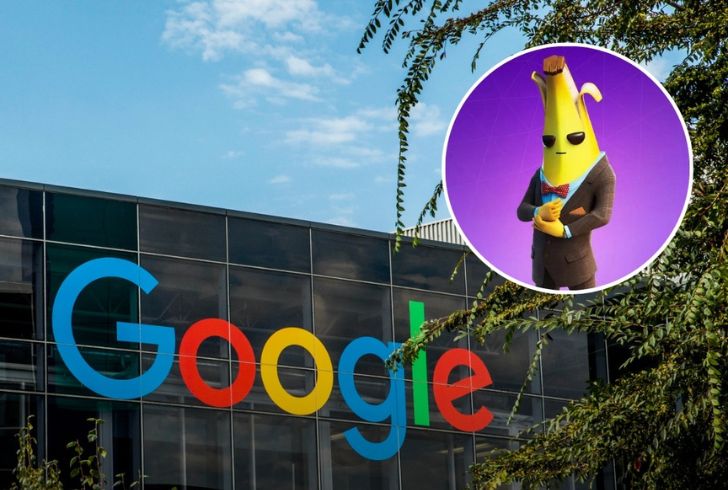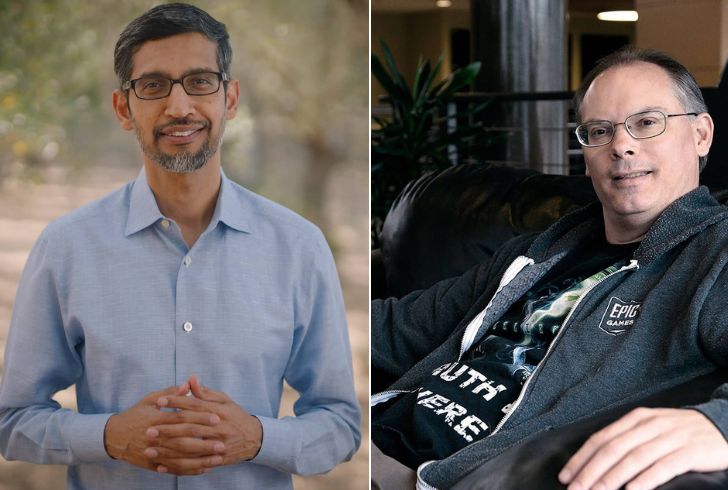In a dramatic turn of events, Fortnite publisher Epic Games is gearing up for another legal face-off, this time with tech giant Google. While you may experience a sense of déjà vu, given Epic’s previous trial with Apple, this Epic v. Google saga brings a fresh set of challenges and implications.
The trial, set to commence on November 6th, marks the culmination of 1,180 days of legal wrangling since Epic initially sued Google. Let’s delve into the intricacies of this legal drama and explore why it matters beyond the courtroom.
The Llamacorn Chronicles: Epic’s Stand Against App Store Fees
Before we unravel the legal intricacies, let’s set the stage with a bit of background. Epic, renowned for its blockbuster game Fortnite, monetizes through in-game purchases using its virtual currency, V-Bucks.
However, until August 13th, 2020, Android and iOS users faced in-app payment fees imposed by Google and Apple, respectively. These charges, often dubbed the “Google tax” or “Apple tax,” became the focal point of Epic’s discontent.

On August 13th, 2020, Epic executed a bold move by sidestepping app store fees, leading to the expulsion of Fortnite from both Apple and Google’s platforms. This strategic maneuver triggered a series of legal battles, epitomized by Epic’s unconventional marketing blitz featuring a unicorn-llama hammer and a memorable attack ad.
As the legal wheels turned, the Apple trial reached a verdict in 2021, but the Google case faced repeated delays. Now, the stage is set for trial number two.
The Future at Stake: What’s in it for You?
The outcome of the Epic v. Google trial holds significant implications, not just for these tech giants but for everyday users. Epic aims to dismantle Google’s alleged monopoly on Android app stores and payment methods, envisioning a future where developers aren’t burdened by the “Google Tax.”
However, Google contends that such a victory for Epic could compromise the security of Android phones, posing a threat to their ability to compete with iPhones.
Epic’s Allegations: Unpacking the Legal Arsenal
Epic’s case against Google revolves around the claim that Google has constructed an illegal monopoly by making it challenging for developers and users to navigate its Android app store.
The alleged tying of Google Play payments to the app store further strengthens Epic’s argument. The central question lies in whether Google truly holds illegal monopolies in “Android app distribution” and “Android in-app payment processing.”
- Monopoly on What?: The trial hinges on defining the relevant market — whether it’s phones and app stores in general or specifically Android ones. Epic’s contention could gain strength if the court accepts that Android apps constitute a distinct market.
- The Google Tax Dilemma: Google’s fees, reportedly up to ten times higher than other payment methods, add weight to Epic’s argument. The absence of a disclosed reasonable fee by Epic raises questions about the fairness of Google’s charges.
Learning from Apple: Epic’s Past Battle and Its Impact
Examining Epic’s previous showdown with Apple provides valuable context. Though both sides experienced setbacks, Epic arguably faced a more significant loss. Despite Apple’s formidable control over iPhones, the court ruled in Apple’s favor. Yet, it mandated changes that could benefit users, signaling a nuanced legal landscape.
Epic v. Google: A Unique Trial Setting

The Epic v. Google trial introduces a distinctive element — a jury trial. Unlike the Apple case, where a judge presided over the decision, this time, it’s in the hands of a jury. The potential influence of evidence concerning Google’s internal dealings and the security concerns related to sideloaded apps could sway the jury’s perspective.
Settlements and The Unfolding Drama
While other parties settled their disputes with Google, Epic stands firm, determined to eradicate the “Google tax.” Google’s alleged dirty tricks, such as “Project Hug” and potential payments to thwart competition, add intrigue to the unfolding drama. Epic’s admission of premeditated actions, countered by Google’s attempts to exploit the China card, promises a courtroom experience filled with twists and turns.
Witnesses at the Helm: Sundar Pichai vs. Tim Sweeney

The courtroom is poised for a clash of titans, with Google CEO Sundar Pichai and Epic CEO Tim Sweeney expected to take the stand. Witnesses from Apple, Netflix, Motorola, and AT&T add further layers to the legal tapestry. The revelations from these witnesses could shape the trial’s trajectory and public perception.
Hypocrisy Unveiled: Contradictions in Claims
Anticipate a fair share of contradictions in the courtroom drama. Epic’s pursuit of ending Google’s monopoly while potentially benefiting from it raises eyebrows. Similarly, Google’s arguments about competing app stores on Samsung Galaxy phones clash with allegations that it attempted to suppress such competition.
Verdict Anticipation: The Countdown Begins
The trial’s timeline suggests a five-week spectacle, with a verdict expected before the December holiday period. The courtroom promises to be a theater of legal maneuvering, with each side presenting its case and attempting to sway the jury’s decision.
Tune in to The Epic Battle
As Epic and Google gear up for an epic legal duel, the trial promises not only insights into the intricacies of app store dynamics but also a peek behind the curtains of these tech giants. Stay tuned for a riveting courtroom saga that could reshape the landscape of app distribution and payment processing. The Verge will be your front-row seat to this epic battle, providing comprehensive coverage starting November 6th.




